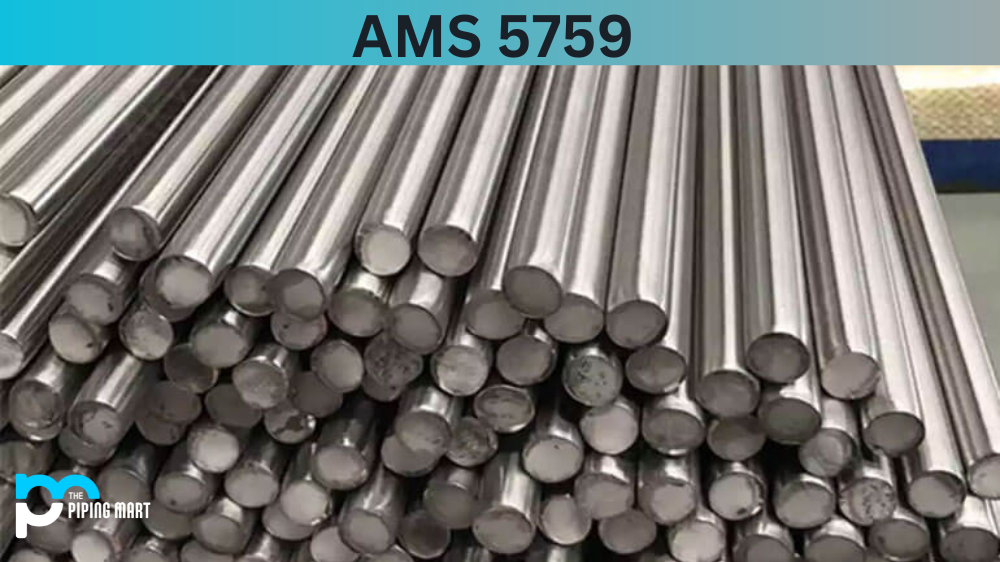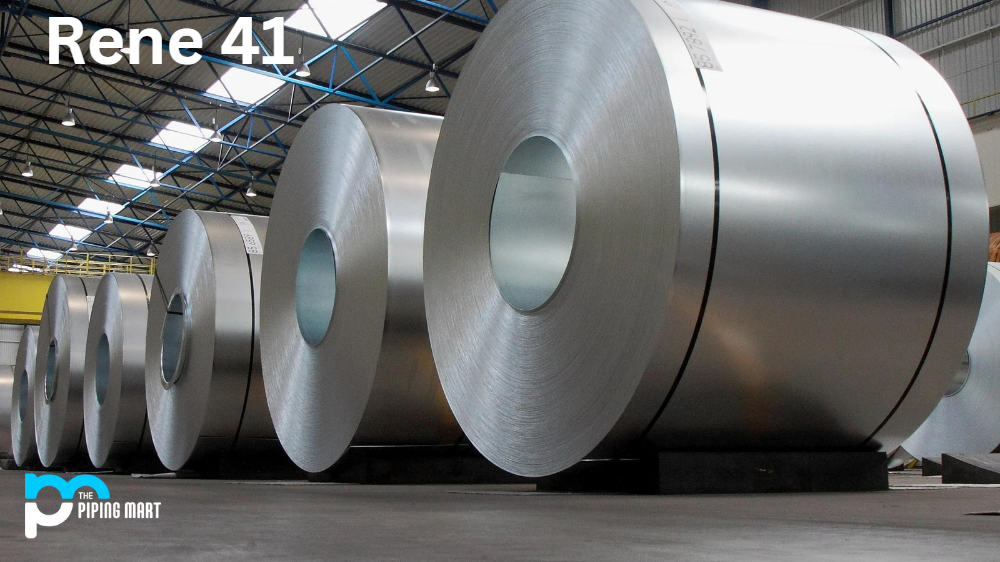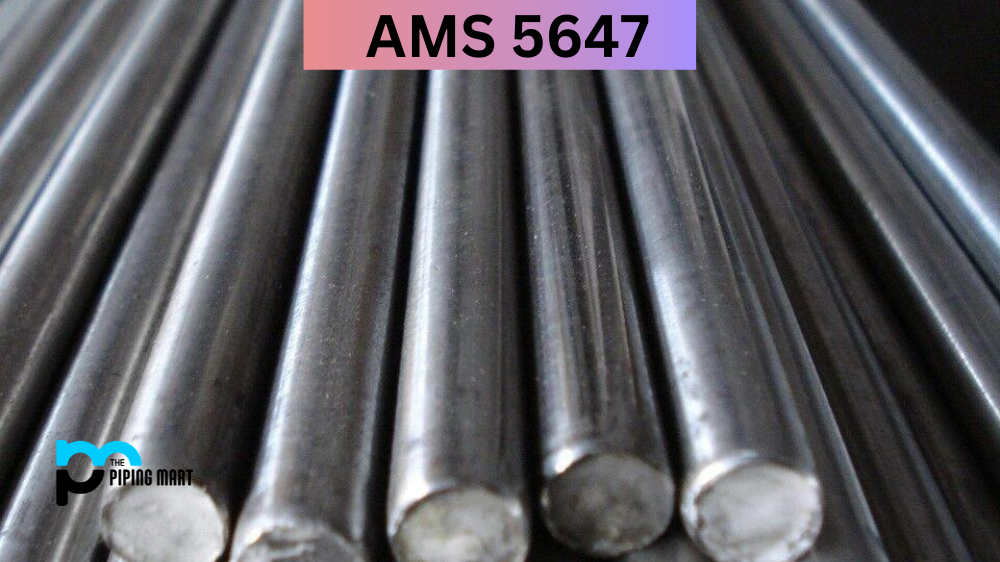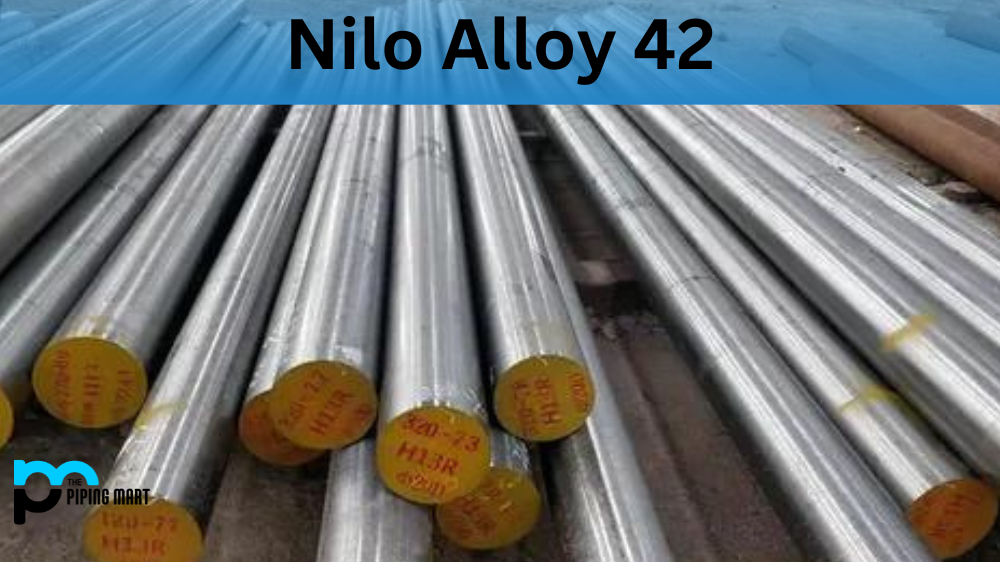When we think about aerospace and aviation-grade materials, AMS5759 often comes into the picture. It is a nickel-chromium alloy that can withstand high temperatures, corrosion, and extreme environments. In this blog post, we will explore the different aspects of AMS5759, starting from its composition to its applications in different industries. So, let’s dive right in!
What is AMS 5759?
AMS 5759 metal (also known as Haynes 25) is a high-temperature resistant steel alloy widely used in the aerospace and aviation industries for its exceptional toughness, durability, and corrosion resistance properties. This alloy is designed to work under high-stress conditions, such as extreme heat or pressure, without deformation or damage. Due to its excellent mechanical strength, AMS 5759 metal is also used in manufacturing jet engines and gas turbine parts, where it can withstand high-velocity impacts and repeated heating and cooling cycles. Overall, AMS 5759 metal is a critical material that significantly ensures the safety and reliability of numerous mechanical systems we rely on daily.
What form is AMS 5759 available at Pipingmart?
AMS 5759 Composition
AMS 5759 is a high-temperature resistant alloy with nickel, chromium, iron, copper, aluminium, and titanium constituents. It has a chemical composition range of 17-19% chromium, 8-10% iron, 4-6% copper, 3-4% titanium, and 0.1-0.5% aluminium. Adding these elements gives AMS 5759 superior resistance to heat, oxidation, and corrosion. The alloy also performs well in harsh marine and industrial environments.
| Element | Content (%) |
|---|---|
| Cobalt, Co | 49.3 |
| Chromium, Cr | 20 |
| Tungsten, W | 15 |
| Nickel, Ni | 10 |
| Iron, Fe | 3 |
| Manganese, Mn | 1.5 |
| Silicon, Si | 1 |
| Carbon, C | 0.15 |
| Sulfur, S | 0.030 |
| Phosphorous, P | 0.040 |
AMS 5759 Physical Properties
AMS 5759 has impressive physical properties, making it perfect for high-temperature applications. The alloy has a melting point of 1310-1370°C and a density of 8.19 g/cm3. It has a maximum use temperature of 1050°C and weighs around 7.53 lbs/in³. The thermal expansion coefficient of AMS 5759 is 13.1 × 10-6 /°C and a modulus of elasticity of 29.30 Mpsi.
| Properties | Metric | Imperial |
|---|---|---|
| Density | 9.13 g/cm³ | 0.33 lb/in³ |
| Melting point | 1382°C | 2520°F |
AMS 5759 Mechanical Properties
The mechanical properties of AMS 5759 are unique and impressive. It is a highly malleable and tough alloy, with a tensile strength range of 150-170 ksi and yield strength of 100-120 ksi. The elongation % in 2″ for this material is 15-20%, and the reduction of area % is 40-50%. AMS 5759 also has excellent fatigue strength, making it suitable for critical applications.
Mechanical Property Requirements |
|||||
|---|---|---|---|---|---|
|
Ultimate Tensile |
Yield Strength (0.2% OS) |
Elong. in 4D % |
R/A |
Hardness |
|
|
Min |
125 Ksi |
45.0 KSi |
30 |
|
|
|
Max |
|
|
|
|
|
|
Min |
862 Mpa |
310 MPa |
|
|
|
|
Max |
|
|
|
|
|
Specifications
Specifications |
|
|---|---|
| Form |
Standard |
|
Metal Type |
UNS R30605 |
|
Bar |
AMS 5759 ASTM F90 GE B50T26A |
|
Cold Worked Bars |
MCI 1031 GPS 2051 |
|
Wire |
|
|
Sheet |
AMS 5537 |
|
Plate |
AMS 5537 |
|
Foil |
AMS 5537 |
|
Fitting |
|
|
Welding Tube |
GE B50T26A |
|
Forging |
AMS 5759 |
|
Weld Wire |
AMS 5759 |
|
Weld Electrode |
|
|
Din |
2.4964 |
AMS 5537 Equivalent
- AISI 670
- AMS 5537
- AMS 5759
- AMS 5796
- ASTM F90
- GE B50T26
- GE B50TF1
- MIL C-24252 Comp 1
AMS 5759 Uses
AMS 5759 is primarily used in high-temperature and harsh environments due to its impressive physical and mechanical properties. This alloy is commonly used in components of aerospace, marine, and industrial applications. It is used in aircraft engines, exhaust systems, gas turbine engines, and heat exchangers. AMS 5759 is also used in marine applications like propulsion systems, seawater-cooled engines, desalination plants, and industrial applications like furnace muffles and radiant tubes.
AMS 5759 Hardness
AMS 5759 bars is a hardened nickel-chromium alloy with a Rockwell hardness of 32 HRC. The hardness of AMS 5759 is critical in ensuring it performs well in high-stress applications. The alloy can be heat treated to increase its hardness, making it suitable for use in applications requiring high strength and wear resistance.
AMS 5759 Heat Treatment
AMS 5759 has a unique heat treatment process that greatly influences its mechanical strength and resistance to wear and tear. The alloy can be annealed at 1038°C (1900°F) for 30 min, followed by air cooling. This process enhances the material’s ductility, which is useful for cold-working applications. AMS 5759 is also commonly solution treated and aged at 925°C (1700°F) for 12 hours, followed by air cooling. This improves its mechanical properties and resistance to corrosion.
Conclusion:
AMS 5759 material is an aerospace and aviation-grade material with unique properties that suit harsh environments. Its resistance to high temperatures, corrosion, and wear makes it an excellent choice for critical applications in different industries. Its impressive chemical composition, and physical and mechanical properties, paired with heat treatment processes, make it appropriate for use in extreme environments. Knowing its composition and uses, as well as its heat treatment and physical/mechanical properties, allows us to understand how it performs in different applications.

Pipingmart is a B2B portal that specializes in metal, industrial and piping items. Additionally, we share the latest information and information about materials, products and various types of grades to assist businesses that are involved in this business.




